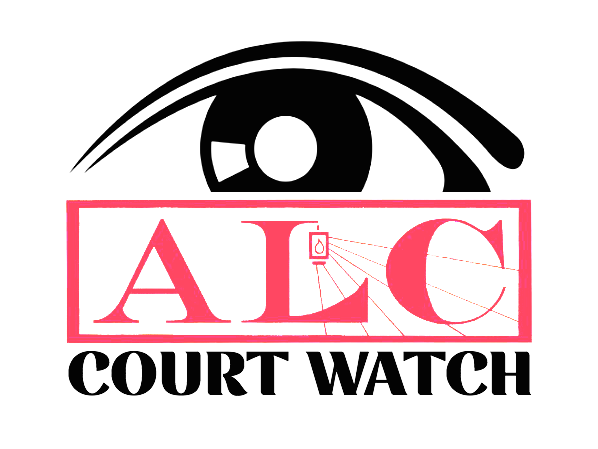
Jaclyn Kurin
On May 18, 2021, Allegheny County became the first county in this nation’s history to abolish solitary confinement by referendum. The ordinance bans Allegheny County Jail (ACJ) from using solitary confinement,1 the restraint chair, chemical agents, and shackles at the jail.
However, as momentous a victory as this is, there are exceptions when solitary confinement can be used at ACJ. Individuals can be placed in emergency short-term solitary confinement when medical and mental health professionals find that temporary commitment is necessary for medical or safety reasons. Healthcare professionals also must state the specific conditions that must be provided to individuals prevent them from experiencing adverse physical or mental health problems while confined. Individuals in temporary confinement are to receive 4 hours of out of cell time daily.
Individuals might also be confined to their cells if the warden locks down the jail, which may occur only if the warden determines a facility-wide lockdown necessary to ensure the safety of persons held in the jail and that less restrictive interventions are insufficient to accomplish those safety goals. During a lockdown, ACJ must ensure individuals have a daily opportunity to leave their cell for hygiene and exercise. Even when one of these exceptions apply, ACJ is prohibited from denying individuals access to food, water, or any basic necessity, appropriate medical care, including emergency medical care.
The ordinance requires the warden to report on a monthly basis to the Jail Oversight Board and post on the jail’s website information concerning the use of temporary solitary confinement and jail lockdowns. The reporting requirements go into effect on July 7th while the substantive provisions banning solitary confinement and the restraint chair begin on December 4th. In order to ensure this ban on solitary confinement brings real and meaningful relief to those subjected to the torture of solitary confinement, we must continue to hold the ACJ accountable to the people’s will. Submit comments and virtually attend Jail Oversight Board hearings by following this link.
QUICK FACTS
What’s Banned at ACJ?
- Solitary confinement—i.e. holding a person in his cell for more than 20 hours a day.
- The restraint chair, chemical agents, and shackles.
When Can a Person Be Placed Solitary Confinement?
- Emergency Use of Short-term Solitary Confinement: An incarcerated person can be placed in temporary solitary confinement only if medical and mental health professionals find it to be necessary for the person’s safety or the security of others. Healthcare professionals also must state which specific conditions are to be provided to the individual to prevent him from experiencing adverse health consequences. Individuals in temporary confinement are to receive at least 4 hours of out of cell time a day.
- Jail Lockdowns: The warden may lock down the entire jail only if the warden determines it a necessary to ensure the safety of persons held in the jail and that less restrictive interventions are insufficient to accomplish those safety goals.
- Protective Custody: An individual requesting protective custody may be placed in short-term solitary confinement but for not more than 72 hours, which is sufficient time for ACJ to ensure less restrictive arrangements to keep the person safe.
What Conditions Must ACJ Provide to People in Solitary Confinement?
- ACJ must provide individuals access to food, water, or any basic necessity, appropriate medical care, including emergency medical care.
- Temporary Solitary Confinement: ACJ is to allow 4 hours of out of cell time.
- Facility-wide Lockdown: ACJ is to make every effort to ensure out of cell time for hygiene and exercise.
- Any conditions that the state or federal constitutions or laws require jails to provide.
How Does a Person Get Out of Solitary Confinement?
- A person being held in isolation—e.g. temporary solitary confinement or jail lockdown—can file an habeas petition for his release in any court of competent jurisdiction.
What Are ACJ’s Monthly Reporting Requirements?
- The warden must report to the Jail Oversight Board and post on the ACJ website the dates and reasons for any lockdown of the jail or section of it; the number of times any person has been subjected to temporary solitary confinement, with the duration and reason for each; the number of times the same person has been held in solitary confinement more than once a in month; the age, sex, gender identity, race and ethnicity of each person held in solitary confinement.
Ordinance Effective Dates:
- The reporting requirement: July 7, 2021
- The ban on the use of solitary confinement, the restraint chair, chemical agents, and shackles: December 4, 2021
1 “Solitary confinement, meaning the confinement of a detainee or inmate in a cell or other living space for more than 20 hours a day, has devastating and lasting psychological consequences on all persons, but especially for vulnerable populations, including youth and persons with diagnosed or undiagnosed cognitive or emotional disabilities.” Ordinance amending Ch. 205 Allegheny County Jail.
